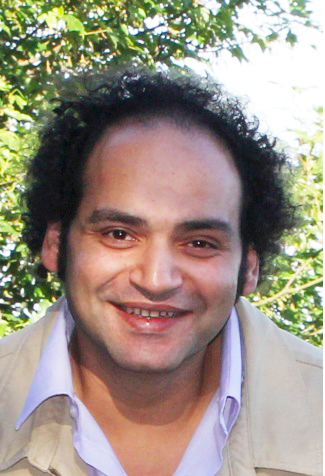By Walaa Gad El-Karim
A year and a half ago, 23 million Egyptians voted in favour of Abdel Fattah Al-Sisi for president. At the time, his popularity was at its peak and the general public looked up to him as a saviour, capable of confronting all of Egypt’s political, security, and economic challenges to save the country from falling into a swamp of disintegration already showing in other countries in the region.
Al-Sisi took the helm under very difficult economic conditions. The tourism sector was dying, thousands of factories were closed, and unemployment rates were through the roof. Even the security situation was, and still is, witnessing an unprecedented growth of terroristic crimes, usually supported and provided for by countries and political forces with political cover, funding, support, and media representation.
There were also problems inherited from the era of former president Hosni Mubarak; a worn-out infrastructure, poor social services, the spread of slums and corruption, and the security apparatus lacking efficiency to help the president solve all those problems.
Now, a year and a half of Al-Sisi’s regime brings forth a fundamental question: does he still have popular support? And do the majority of Egyptians still believe he is a saviour?
The answer is not related to whether the challenges highlighted still exist or not because the accumulations of decades cannot be disposed of in a year and a half. The answer is linked to the people’s confidence in Al-Sisi’s ability to solve them. In other words, it is the people’s evaluation, their belief in whether or not he is moving in the right direction, and their willingness to give him more time.
The 25 January Revolution in 2011 and 30 June uprising in 2013 left Egyptians with less patience. They became more demanding regardless of the availability of resources. They resort directly to the streets when they decide to withdraw confidence from their rulers. There have already been calls from limited political bodies to go back to the streets. But will those calls be accepted? Is the majority that once supported Al-Sisi two years ago likely to move against him now?
For many complex reasons, I think the answer to these questions is no. Groups calling for a revolt against Al-Sisi are no longer able to grab attention from the street as they could have five years ago. The majority of Egyptians believe these groups to be part of the problem, and not the solution. There was much damage to public spaces after the 25 January Revolution that were attributed to those same groups, who were not able to unite and come up with a revolutionary alternative capable of building a state. Many revolutionary bodies and figures are facing various accusations, and as unproven they may be, they are still able to affect their popularity on the street.
Another reason is the Muslim Brotherhood’s role in circulating those calls for unrest. Egyptians believe the Muslim Brotherhood is a fascist faction that refused to step down from power peacefully and insisted on escalating violence, terrorism, and bloodshed. The Brotherhood also accused the Egyptian army of many things while the army is respected and appreciated by ordinary civilians. Parties that support the Brotherhood are now exposed and are seen as backdoors through which the terrorist organisations can sneak back into the political scene.
Although the past year and a half led to multiple tensions and widened the gap between the regime and a number of youth groups and the government’s failure to deal with a number of economic, service, and legal files, and a severe dissatisfaction among citizens, it also witnessed positive achievements for Egyptian foreign policy. It witnessed the inauguration of a number of mega projects, such as the New Suez Canal and the establishment of power plants, roads networks, and new gas findings.
A number of comparisons between Al-Sisi’s achievements and failures is not the decisive factor governing the response to the call for revolution. Rather, the people’s evaluation of the quality of his achievements will decide this. The people are, of course, not completely satisfied regarding their living conditions and are disgruntled about a large number of officials.
However, the people still believe in Al-Sisi’s ability to change his men and force the government onto the right direction that can match his aims and vision for the future.
Although Al-Sisi still enjoys the support of a large majority of Egyptians, it is fair to say that some negative aspects of the past period have left an impact on the nature of his popularity among Egyptians. The predominant mass that supports him has shifted from being active to static. The millions that once spread to the streets to support him in his presidential elections will not move against him in a public revolution. They will not be motivated to actively support him, which is clear from the low participation of voters during the recent parliamentary elections.
President Abdel Fattah Al-Sisi is still able to complete his presidential mandate and escape the trap of a prefabricated popular revolution. That however does not mean that everything is alright. He needs to quickly and effectively ground his popularity and move his supporters from being static to becoming active. For that to happen, there needs to be radical changes in the government and the institution of the presidency after the parliamentary elections.
Walaa Gad El-Karim is a researcher, writer and Middle East consultant, and the Director of Partners for Transparency



